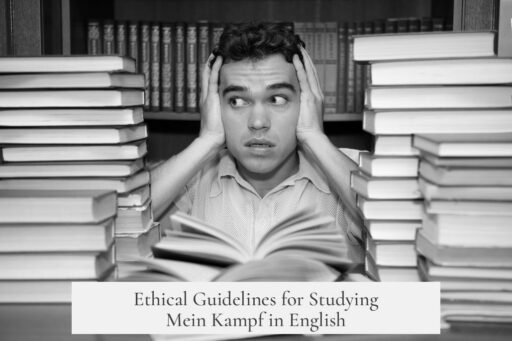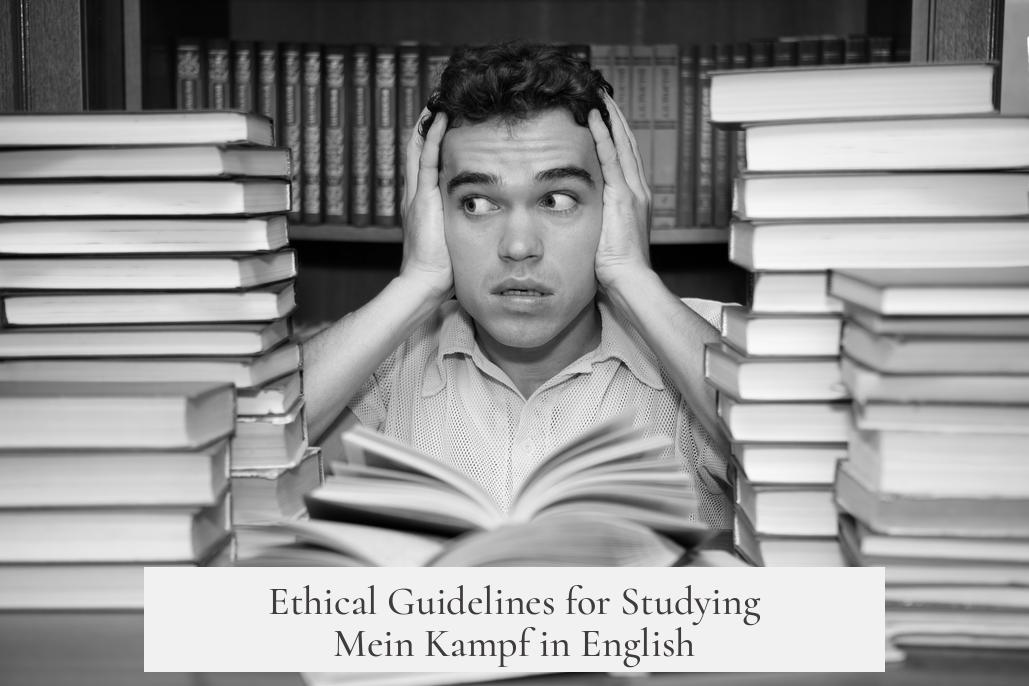Studying Mein Kampf in English requires an ethical approach that emphasizes critical context, awareness of propaganda, and supplementary research. The book is not a straightforward historical account. It is an ideological manifesto written by Adolf Hitler to promote his Nazi worldview. Readers must avoid accepting its content at face value and instead use rigorous critical tools to understand its purpose and limitations.
Start with a clear mindset about the nature of the text. Mein Kampf serves as a self-mythologizing, propagandistic work rather than an objective history of the Nazi movement. Hitler intentionally frames facts selectively to glorify his role and the Nazi ideology. He fabricates or omits significant events, reshaping his personal narrative to fit his political aims.
For example, Hitler claims in Mein Kampf that his anti-Semitism developed early during his time in Vienna. Yet historical evidence contradicts this timeline. He worked with and received financial help from Jewish acquaintances, and a Jewish officer awarded him an Iron Cross in World War I. These facts undermine his self-portrayed radicalization story. This shows the need to consult external sources and not take the text as literal truth.
Moreover, Hitler deliberately excludes key aspects of his past that complicate his narrative. He avoids mentioning that he was an Austrian draft dodger and downplays his role in political movements that conflicted with his later ideology. Such omissions reveal an intent to construct a clean, heroic biography rather than provide a full account.
- Recognize that Mein Kampf sanitizes the history of Nazism. This curated version fits Hitler’s idealized framework, not the complex historical reality.
- The book acts more like an ideological “faith” document, explaining Nazi beliefs from Hitler’s unique perspective.
- Engage with scholarly commentary and critical discussion to gain deeper insight.
Ethical study entails placing the text within the broad historical and scholarly context of Nazism, antisemitism, and World War II. Secondary sources, academic research, and critical analyses are essential to challenge the distortions and propaganda embedded in the book.
Several recommended practices when studying the English translation of Mein Kampf include:
- Acquire scholarly editions. Use versions that include footnotes, annotations, and historical introduction explaining the text’s context and falsehoods.
- Consult reputable historians. Reading historians’ critiques or discussions about the text helps unpack its propaganda and intent.
- Understand ideological function. Recognize it as a piece of political mythology advancing a specific worldview, not a comprehensive history.
- Cross-reference facts. Verify claims against other primary documents and historical evidence.
- Reflect on ethical implications. Recognize the harm caused by the ideology promoted and avoid uncritical acceptance.
Useful resources include discussions and explanations from academic forums such as the AskHistorians subreddit, where historians emphasize how dangerous it is to read Mein Kampf without caution. They stress that early exposure without context can skew understanding and reinforce harmful narratives. Critical scholarship is crucial to “unlearn” the text’s biased messaging.
In summary, ethical study of Mein Kampf in English requires comprehensive contextualization and critical evaluation. It demands acknowledgment of its propagandistic nature and engagement with external scholarly materials. Interpret it as a revealing insight into Nazi ideology and Hitler’s self-presentation, not as an unbiased historical source.
| Key Guidelines for Ethical Study of Mein Kampf (English) |
|---|
| Approach with critical context and caution |
| Recognize its propagandistic and mythologizing purpose |
| Corroborate claims with external historical evidence |
| Use annotated, scholarly editions when possible |
| Consult historians’ analyses and debates |
| Interpret as ideological text, not factual history |
| Reflect on ethical concerns and the text’s impact |
This structured method helps prevent the absorption of false narratives. It respects the traumatic legacy of the ideas within and supports an informed, responsible engagement with this deeply contentious work.




